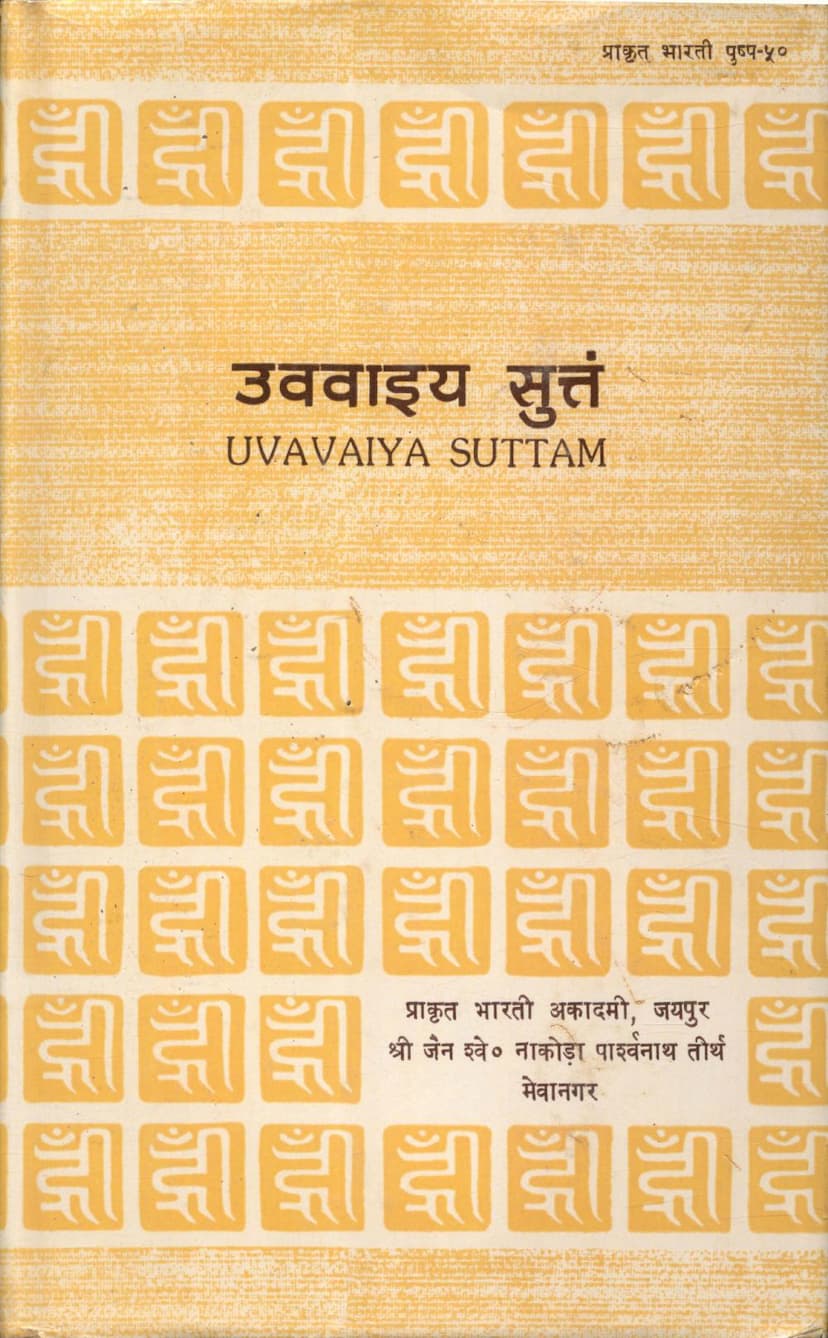Uvavaia Suttam
Added to library: September 2, 2025

Summary
The Uvavaiya Suttam (also known as Aupapātika Sūtra) is the first of the twelve Upānga Āgamas in Jain scripture, considered a sub-canon. It is mainly written in Prakrit prose and is divided into two parts: Samavasarana and Upapāta.
The Samavasarana part describes the sermon given by Lord Mahāvīra in Champa city, where King Kūņika (Ajātaśatru) sought his blessings. It details the king's devotion, the description of Lord Mahāvīra's physical attributes, the spiritual powers of his disciples, and the grand procession to meet the Lord. This section is known for its rich, ornate, and lively descriptions, often referred to in other Agamas for similar descriptive passages.
The Upapāta part begins with Lord Mahāvīra's discourse after Ganadhara Gautama poses questions about the transmigration of souls and karmic bondage. The discourse covers various topics, including:
- Types of unethical deeds (dandas) and death.
- Categories of people like widows, ascetics, monks, and Brahmins.
- The conduct of various religious figures and groups.
- The concept of seven distortions (ninhavas) in religious thought.
- The process of Kevali-Samudghāta (a state of spiritual transformation).
- The realms of the liberated souls (Siddha-kshetra and Siddhas).
- A detailed account of Ambada Parivrājaka and his 700 disciples, highlighting Ambada's devotion to Lord Mahāvīra and his future liberation.
The text offers insights into political, social, civil, religious, philosophical, and cultural aspects of life during Lord Mahāvīra's time. This particular edition, published by Prakrit Bharti Academy, is notable for including both Hindi and English translations, making the important Āgama accessible to a wider audience. The Hindi translation is by Ramesh Muni Shastri, and the English translation is by the late Prof. K. C. Lalwani. The foreword is by Dr. Muni Nagraj ji. The publication aims to bridge the gap in scholarly works by providing these translations, facilitating deeper research and understanding of Jain literature.